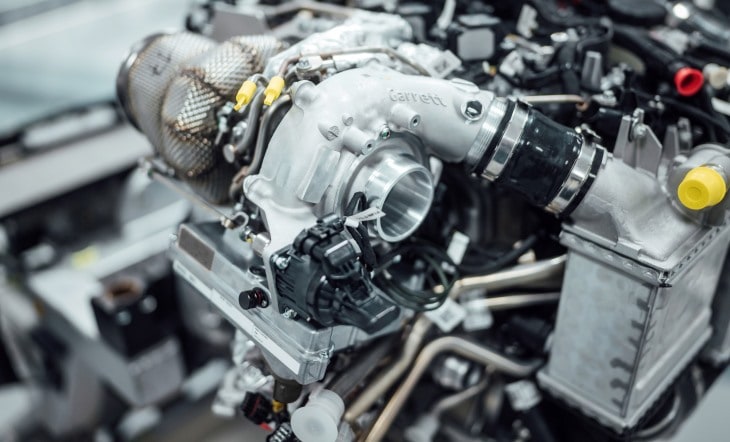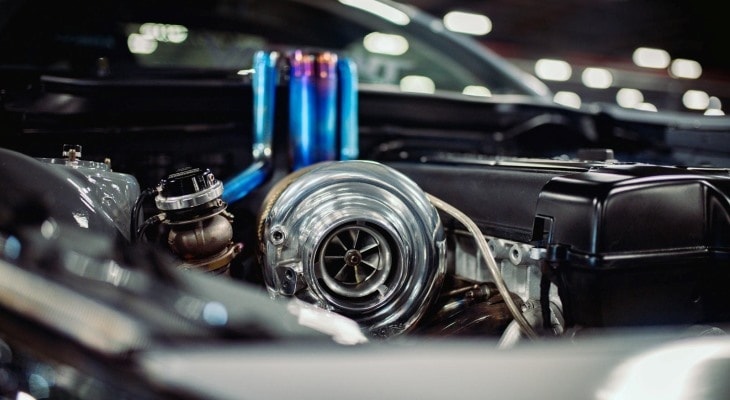Who wouldn’t want extra power and efficiency from their engine? Adding a turbocharger to your vehicle is a way to deliver an extra boost. While some vehicles come straight from the factory with a turbocharger, other car owners choose to add turbochargers on their own.
Will a turbo work with an automatic transmission? What do you need for a turbo in your car? Are there potential problems? We’ll answer all these questions and more!
Table of Contents
Will a Turbo Work in an Automatic Car Engine?

Good news! A turbocharger will absolutely work in most automatic car engines! An automatic transmission does not affect a car’s ability to maximize efficiency and power with a turbocharger.
This wasn’t always the case. Some older automatic transmissions weren’t as robust and couldn’t handle the extra dose of power. However, newer automatic transmissions should be able to cope with the added boost of a turbocharger.
How Does an Automatic Engine Perform with a Turbo?
A turbocharger is basically a type of air pump. It takes recycled air and compresses it to a higher pressure, then passes the air into the engine.
Combustion engines operate by mixing air and fuel. A higher ratio of air to fuel will allow the engine to burn the fuel more efficiently and have a higher output of power.
Automatic transmissions react really well to the addition of turbochargers. The transmission is able to shift more quickly than a manual transmission. In addition, the engine can maintain the charge instead of losing it every time the driver releases the gas and engages the clutch.
What Components Do I Need to Install a Turbo in an Automatic Engine?

A turbocharged engine doesn’t just involve the actual turbo! There are several vital components that must be a part of any turbo system in order for it to run.
Compressor
The compressor is part of the pressure side of the turbocharger. The compressor wheel is attached to the turboshaft and the exhaust turbine wheel. They all spin together to move and compress recycled gasses.
What size compressor is best? It depends on how you want to use your engine. A small compressor is more efficient at low speeds, but will restrict air flow and create excess heat at high speeds. A large compressor is great for the fast lane, but you may deal with boost lag and compressor surges at lower speeds.
Turbine
The turbine spins the compressor wheel. It’s important to choose the right size of turbine for your desired output and efficiency.
Wastegates and Bypass Valves
In order to keep the engine from accumulating too much pressure, wastegates and bypass valves are installed. Wastegates direct excess gases back into the exhaust path.
The bypass valve deals with excess stored pressure that may fill the system when the engine is not accelerating. The valve vents out the unwanted pressure so that the compressor doesn’t stall.
Intercooler

Between the engine and the turbocharger, there is a lot of created heat! The intercooler helps keep the engine from overheating. The compressed air runs through the intercooler before it gets to the intake.
Not only does cooler air run more efficiently, but the intercooler prevents detonation in your engine. This is an important safety feature!
Fuel Systems
Your engine will need more fuel in order to accommodate the extra power from a turbocharger. The fuel system should deliver the proper amount of fuel needed to give your engine the extra boost it needs!
The Turbo
Finally, you’re ready for the actual turbo! If you are on a budget, secondhand or junkyard turbos are available for a relatively low price. Whether you buy a new or used turbo system, look for one that is lightweight and well sealed.
Is It Dangerous to Turbo Charge an Automatic Car?
A proper turbocharger can deliver power and efficiency to an engine! However, there are risks.
- A missing or failed intercooler can cause detonation.
- An improperly installed turbo system can permanently damage the engine.
- Turbo lags at high speeds can be dangerous.
Final Thoughts
Give your engine a boost with a turbo! Most automatic transmissions will respond well to a turbocharger. Enjoy the extra power and efficiency!

